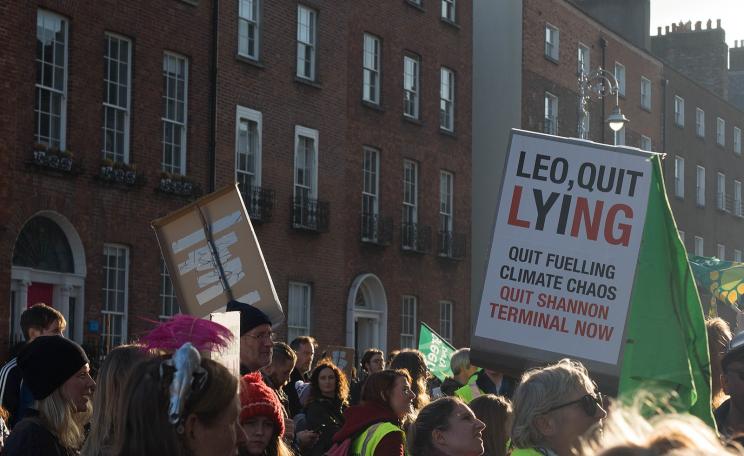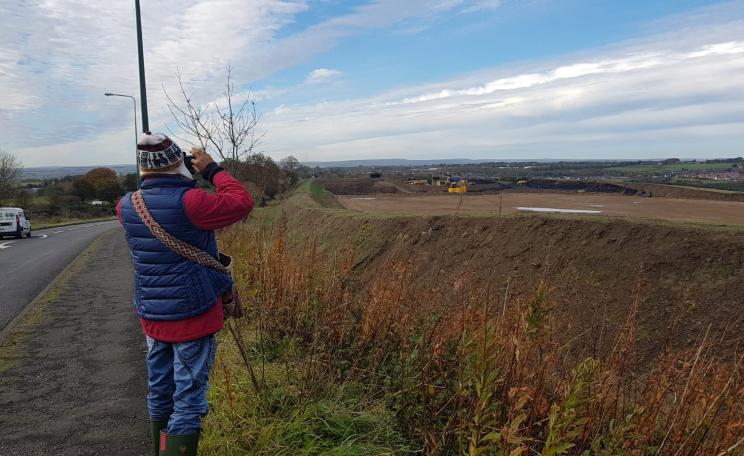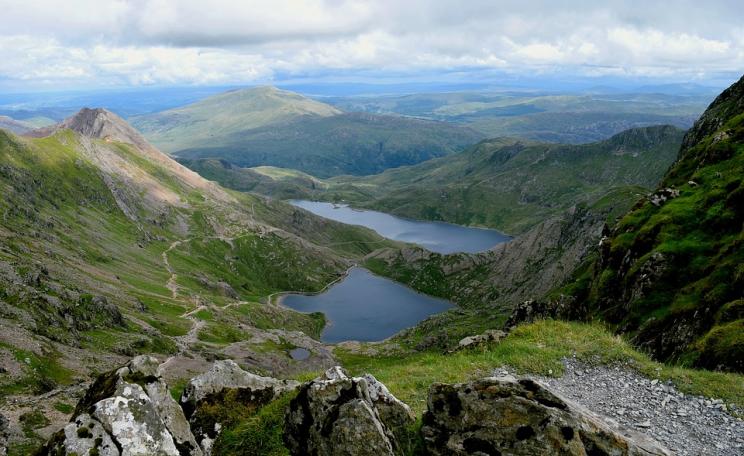With Colombia's conventional oil stocks dwindling, the promise of replenished reserves obtained through non-conventional extraction has repeatedly been trumpeted by the country's oil and gas sector
Fracking (short for hydraulic fracturing) is a particular method of oil and gas extraction. It uses intense water, air or chemical pressure to fracture rock formations and release trapped fossil fuels. Studies however have found that the practice can trigger medium-sized earthquakes, can affect the quality of surface and groundwater, and can lead to elevated emissions of methane - a potent greenhouse gas.
The extraction method has already been banned in countries such as Scotland and Germany, and dozens of municipalities across South America have declared themselves to be "free of fracking".
But despite the risks, the Colombian government has moved ahead with an extensive programme of licensing.
"Colombia cannot give itself the luxury of not doing fracking" explained Juan Carlos Echeverry, the President of state oil company Ecopetrol. With Colombia's conventional oil stocks dwindling, the promise of replenished reserves obtained through non-conventional extraction has repeatedly been trumpeted by the country's oil and gas sector.
Exploratory drilling for non-conventional extraction is already underway in San Martin (Cesar province) and Anapoima in the province of Cundinamarca. In San Martin, American fossil fuel giant ConocoPhillips has teamed up with Canacol on the VMM-2 project. For months, local communities in San Martin have organised non-violently to protest the project, led by the Association Defending Water, Land & Ecosystems (Cordatec in Spanish). In September, they blockaded the entrance to the exploration site, preventing the entry of company equipment. In October, riot police moved to repress the protest, injuring 10 demonstrators.
The opposition to fracking has also taken place on a national level. The Alliance for a Colombia Free of Fracking - a coalition of environmental organisations, trade unionists and land defenders - recently signed an open letter calling on Colombian President Juan Manuel Santos to declare a moratorium on fracking, citing its multiple environmental, seismic and public health impacts. The letter also declares fracking activities to be in violation of Colombian constitutional principles that guarantee citizens the right to life, the right to water, and the right to a healthy environment.
With Colombia's conventional oil stocks dwindling, the promise of replenished reserves obtained through non-conventional extraction has repeatedly been trumpeted by the country's oil and gas sector
Although the Colombian government has adamantly defended the strength of its own regulatory framework, the country's own Comptroller has warned of irregularities, and has ordered the National Hydrocarbons Agency to "to refrain from signing contracts for the exploitation of non-conventional oil deposits". The country's Ministry of Environment is also set to release a study showing that the country is not ready to monitor or regulate non-conventional fossil fuel extraction.
In a country with over one hundred active socio-environmental conflicts, the expansion of fracking risks aggravating tensions. Colombia is still in the process of implementing a landmark peace agreement brokered in late 2016 between the government and the FARC (Revolutionary Armed Forces of Colombia), which drew five decades of civil war to a close.
Last October, Cordatec wrote that the government's actions to push through fracking "demonstrate the real way in which the national government is building "territorial peace". While it sits in Havana, negotiates and comes to an agreement with the FARC to put an end to 50 years of war, in benefit of multinational companies and economic interests...it uses violence against communities who defend life, water, land and ecosystems."
Approved exploration contracts for fracking overlap with the territories of Indigenous communities such as the Yupka, Wiwa and Wayúu peoples. They also cross the "Black Line" - an established demarcation of territories in the Sierra Nevada region that hold sacred value for the Kogi, Wiwa, Kankuamo and Aruaco peoples.
In addition to contravening the land rights of Colombia's Native peoples, the Colombian Government's issuance of contracts for fracking has prompted fears of possible human rights violations, given the oil industry's historic record in the country. Since oil companies first arrived in Colombia at the turn of the century, numerous local communities have experienced gross ecological and social impacts, ranging from water depletion to brutal intimidation. Drummond, an American company party to five new fracking-related contracts, has previously been linked to paramilitary payoffs and violence in the northeastern region of Cesar.
The new fracking concessions also threaten a range of páramo ecosystems, including the Chingaza páramo, a unique water ecosystem that provides the capital city of Bogotá with four-fifths of its water. The Sumapaz páramo, the largest in the world, is also under threat. In other parts of the country, unique wetland ecosystems could also be at risk.
While the scale of Colombia's fracking concessions is unprecedented in the region, the extractive practice is no newcomer to Latin America, with fracking ventures active in at least seven countries. Argentina, home to the second largest shale reserve in the world, has seen a flurry of extraction projects in northern Patagonia, with Royal Dutch Shell recently announcing major investments. Bolivia, Brazil, Chile, Peru, and Mexico have also seen the use of fracking.
These Authors
Sebastian Ordoñez Muñoz is senior international programmes officer (Latin America) at War on Want and Daniel MacMilllen Voskoboynik is coordinator at This Changes Everything UK




